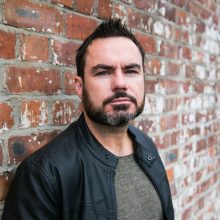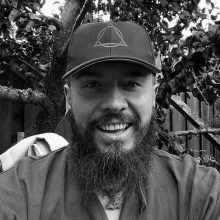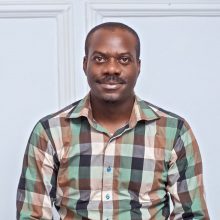Magebane by Stephen Aryan
What led you into writing?
As a small child I loved reading. And since then I’ve always had a book on the go. I’ve never stopped reading and somewhere along the line I decided I wanted to become I writer. I think I was about 8 or 10 when I told my dad I was going to be a writer. I’m pretty sure he just smiled and thought it was a phase.
I love stories that capture the imagination. I have been reading fantasy from the beginning but also books of myths and legends from around the world. I went through the whole myths section in my school library and then the local town library. I devoured every story I could find about fantastic beasts, mythical adventures in far away places with strange sounding names. All of it just fed my imagination.
I finished writing my first novel when I was 18 and, of course, it was awful. But, for whatever reason, I just kept going. I’m also very stubborn, so I guess that helped as I received a number of rejections over the course of many years before I found an agent and then a publisher.
How does a typical day look?
I write part time and freelance part time. But a typical day during the week is very similar. I’m at my desk for 9am and ready to write or work. It keeps me honest and the discipline stops me sitting around all day without getting dressed. I have a set time for lunch and I finish at the same time.
I’ve been working at home for a few years but I knew from the beginning that the only way to keep going, without cracking up, was to have a structured day. Sometimes I write at weekends and in the evenings too, but I don’t force myself to if I don’t feel like it.
Everyone has to find their own way. For me, I set a daily word count. That keeps me on track with my deadlines and so far I’ve been early or on time for every single one.
In what ways do your characters test your abilities?
Getting under the skin of a character can be difficult. Sometimes I have a clear picture of who a character is and other times it evolves during the course of the first draft. I think writer’s block isn’t a thing, at least not in the way people typically think about it. Sometimes, I think not being able to write is when your brain is telling you something but you’re ignoring it. If you stay flexible and are willing to adapt and let a character change to a certain degree as you go along, I think it makes for a much smoother writing process. I also think characters need to be believable within the confines of the story and the world. Getting that right can be a challenge.
What’s your setup?
I’m really basic. I don’t use any clever software, or a whiteboard, or note cards. It’s just a big old desk, a PC and Microsoft Word. I’ve always done it this way. As a general rule I don’t write anywhere else.
What lasting effects have your favourite authors had on your writing and style?
Looking back on books you read when you were younger and being critical about them is easy. Even if I would struggle to read some of them today, the lessons they taught me are still valid. Authors that I read in my formative years are David Eddings, Terry Brooks, Ursula le Guin, CS Lewis, Tolkien, Margaret Weis and Tracy Hickman, and David Gemmell. All of them taught me about character, world building and imagination. All of them taught me about bringing the reader on a journey into a new world. I knew going in, with all their books, it wasn’t Earth, and that’s exactly what I wanted. A journey into their imagination. I wanted to visit another world.
All of them created fantastical worlds and many of all diversified beyond the traditional fantasy mould. They weren’t afraid to experiment which is something I’ve done too. People might know Weis and Hickman for DragonLance, but I remember the Death Gate Cycle books which were amazing, the Darksword novels, and the Rose of the Prophet Trilogy. Likewise with David Gemmell, he’s most well known for his Drenai books, but I absolutely loved his Troy books and those about Jon Shannow, which are post-apocalyptic westerns. When people read my novels the influence of Gemmell is obvious, particularly around characters and style, but the others are all in there too, somewhere in the mix.
What do you do for inspiration?
Read books and comics, watch TV and films, but I also regularly take a break and just do something physical that has nothing to do with story or characters. Time away from the keyboard can feel like time wasted. The mantra of ‘you should be writing’ and the guilt is a common one felt by many writers. The problem is if you keep going to the well, without taking a break to fill it up, one day it will be empty. While I’m cutting down trees or working in the garden my brain is recharging in the background. I regularly volunteer with the Wildlife Trust and Forestry England and that also helps with inspiration.
What repeating themes do you find yourself pulling into your stories?
My first novel, Battlemage, is all about power. Magical. Political. Physical. How different people respond to power when it’s given to them, inherited or forced upon them against their will. Power is a theme I’ve touched on a few times. Heroism is another that I often revisit because there are lots of different ways to interpret being a hero. I write a lot about faith, belief, exploring different cultures and some of that comes from a love of travel and visiting new countries. I have a love of nature and the natural world and that creeps in as well.
How do you wind down?
Read, play video games or board games, watch TV and hang out with friends and family. Time away from any kind of screen is also a good thing. Pursuing other hobbies helps me wind down, whether it’s brewing beer or growing veg in the greenhouse.
What sort of challenges do you regularly overcome while world-building?
Balance. It’s all about that for me. I want to give the reader enough information so that they can see the imagined world clearly in their head, but I don’t want to bog them down in too many details so they’re bored and it’s a slog.
What are you reading at the moment?
I’m currently reading Sheepfarmer’s Daughter by Elizabeth Moon. I’ve got a To Read Pile that’s pretty big but that doesn’t stop me from adding to it all the time. After that I’ve got a biography to read, then it will be a SF novel and then back to fantasy. I like to mix it up a bit.
What’s the most useful advice you could give to an aspiring author?
Finish the book. Even if it goes nowhere. Even if it feels like crawling over broken glass to get it done. Even if you hate it by the end. Finish the book. Only then can you look back and see it as a whole. See what’s good and bad. See how you can improve it. See what you were trying to do and how close or far you came from that original idea. Having ideas is easy. Talking about them is great fun but it’s not writing.
I’m not going to compare the difficulty of writing to other jobs because, of course, there are many jobs that are a lot tougher. However, that’s not to say writing is easy. It’s draining and a constant challenge. Once you have a finished draft you’ve done what a lot of others talk about but never actually achieve. How many times have you heard people say ‘I’m going to write a book one day’ when you tell them you’re a writer? Don’t be one of those people.
Finish the book. Learn from it and then, move on. If no one bites on that book, put it down, and write another one. I’m not sure if I believe the 10 thousand hours things to become accomplished at a skill, but you won’t be a good writer if you only produce one book. Any writer that looks back on their first book and tells you it’s perfect and they wouldn’t change a single word is either a liar or delusional. It’s a craft and it takes time, practice and effort.
Tell us about the book you’re promoting.
Magebane wraps up my second trilogy, the Age of Dread. It’s epic fantasy and features wizards, spies, warriors and a diverse cast of characters. This trilogy has both adult mages and younger protagonists who have to come to terms with a world that is scared of them because of their magic.
My first trilogy, the Age of Darkness, was atypical, as each book is a slightly different genre within fantasy, and they all built on one another. The Age of Dread is more traditional, in terms of it being a large 3 part story. Magebane brings everything together that I’ve been working towards over the course of 6 books. I had to wrap up a lot of different storylines in a satisfying way in case I never return to telling stories in this world.
👋 Hi! I run Author Interviews
As a new writer I found myself itching to contribute to a thriving, creative community, so I made Author Interviews and I've met loads of wonderful people in the process. You can buy my debut fantasy RINGLANDER: THE PATH AND THE WAY from Amazon.
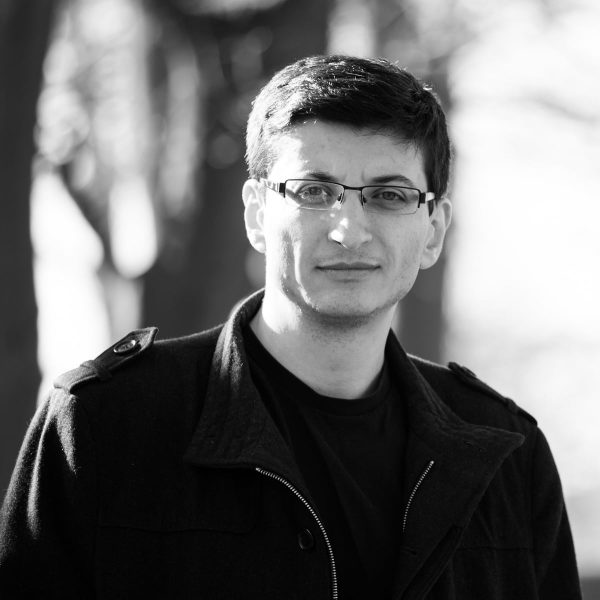
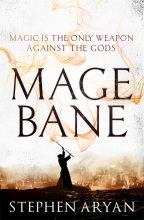
 Audible
Audible